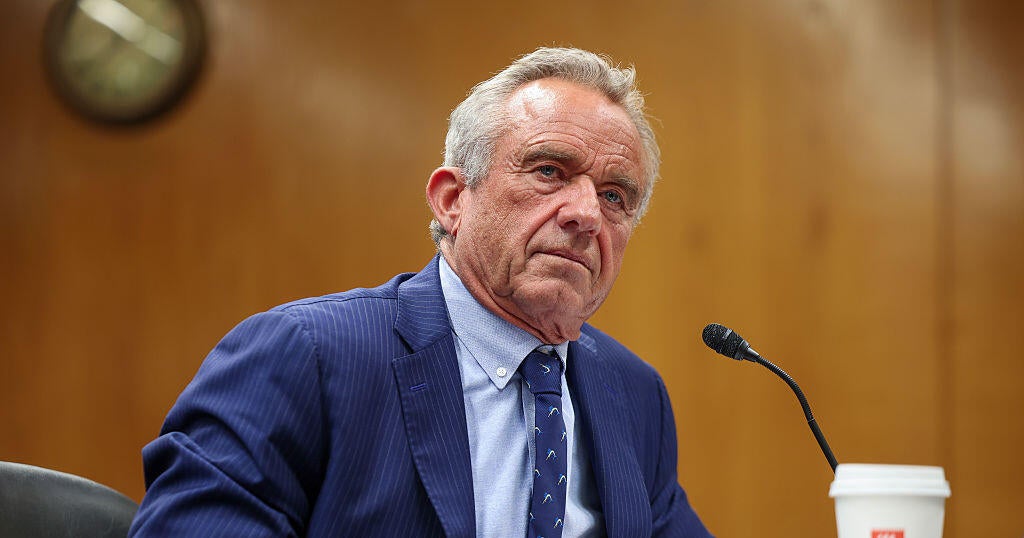The White House’s "Make America Healthy Again" Initiative: A Deep Dive into Childhood Chronic Disease
The White House has launched a pivotal initiative known as the “Make America Healthy Again” (MAHA) commission, headed by Health and Human Services Secretary Robert F. Kennedy Jr. This commission recently released its inaugural report, articulating what it identifies as four leading drivers of childhood chronic diseases that plague American children today.
A Unifying Force in Addressing Health Crises
“This report is the product of a consensual process and represents a collaborative effort among all agencies and the White House,” Kennedy stated during a pre-release call with reporters. He described the finding as a ground-breaking consensus, potentially the strongest articulated by a government agency regarding America’s health crisis. The report serves as a foundation for ongoing efforts following President Trump’s executive order issued in February, with a comprehensive policy strategy set to emerge by August.
Disturbing Statistics: The State of Childhood Health
Statistics in the report spotlight the pressing "chronic disease crisis" among children. Mr. Trump remarked that over 40% of American children now suffer from at least one chronic health condition. Alarmingly, rates of childhood obesity have surged since the 1970s, and autism has increased significantly, previously standing at 1 in 10,000 children just decades ago, now escalating to 1 in 31.
While many health experts attribute the rise in autism to advancements in diagnostic practices, the stark figures emphasize a need for urgent action. During a roundtable discussion at the White House, Mr. Trump pointed to these statistics to underline the severity of the situation.
The Four Key Drivers of Chronic Disease
The MAHA report is structured around four main topics that it terms the “potential drivers behind the rise in childhood chronic disease”:
-
Poor Diet: An alarming shift in dietary habits toward ultra-processed foods is a significant concern. The report echoes Kennedy’s long-standing criticisms about the nutritional quality of modern diets, particularly the transition away from traditional, minimally processed foods.
-
Cumulative Chemical Exposure: The report flags the potential dangers posed by exposure to a mix of chemicals, including food additives and pesticides. It emphasizes that evaluating these substances individually may not account for the cumulative burden on children’s health.
-
Lack of Physical Activity and Chronic Stress: The report cites the increasing rates of physical inactivity in children, compounded by stressors rampant in modern society as contributing to poorer health outcomes.
- Overmedicalization: Finally, the report touches upon concerns regarding the rise of prescriptions and vaccines, questioning their long-term effects on children’s health.
Critiques and Controversies
Despite the ambitious nature of the report, it has faced scrutiny from various quarters. Current and former federal health officials argue that it misrepresents facts and overlooks critical drivers of childhood health issues. A key criticism is that the report simplifies the complexities of chronic diseases, seeking specific causes instead of addressing broader systemic issues that affect health, such as maternal health and environmental factors.
Focus on Chemicals: Pesticides and Their Impact
Particularly notable is the report’s warning about the widespread exposure of children to a cocktail of chemicals. The analysis includes pesticides among potential risks, advocating for a updated evaluations of their effects. It underscores the need for further scrutiny regarding the use of herbicides like glyphosate and acknowledges the substantial role these substances may play in health complications.
Yet, while highlighting these risks, the report also recognizes the need to support U.S. farmers and maintain agricultural productivity, suggesting that changes must be gradual to avoid upsetting the food supply balance.
Vaccines and Medications: A Complex Relationship
The report delves into the implications of commonly prescribed medications and vaccinations in pediatric care. It raises "important questions" about the long-term impacts of medications such as antidepressants and weight loss drugs on children. Notably, Kennedy questions the growth of the childhood vaccine schedule compared to that of many European nations.
However, these assertions have been met with opposition from established health organizations. Critics argue that Kennedy’s stance fails to address the rigorous safety protocols involved in vaccine development and monitoring.
Addressing the Report’s Gaps
In light of the controversies surrounding the report, several health officials have called attention to its shortcomings. They assert that it neglects well-documented factors contributing to chronic diseases, such as lead exposure and maternal health concerns. Critics contend that the report may misrepresent the current understanding of childhood cancer rates, attributing much of the apparent rise to enhanced diagnostic capabilities rather than actual increases in incidence.
The Broader Implications
The MAHA report reflects a comprehensive and urgent discourse on childhood health, unpacking a complex interplay of factors that contribute to chronic diseases. Yet, the divided opinions and critiques underscore that any initiative aimed at tackling such a pervasive issue must navigate a landscape of scientific scrutiny, public trust, and policy effectiveness. The ongoing discussions around MAHA signal a pivotal moment for public health narrative moving forward.


